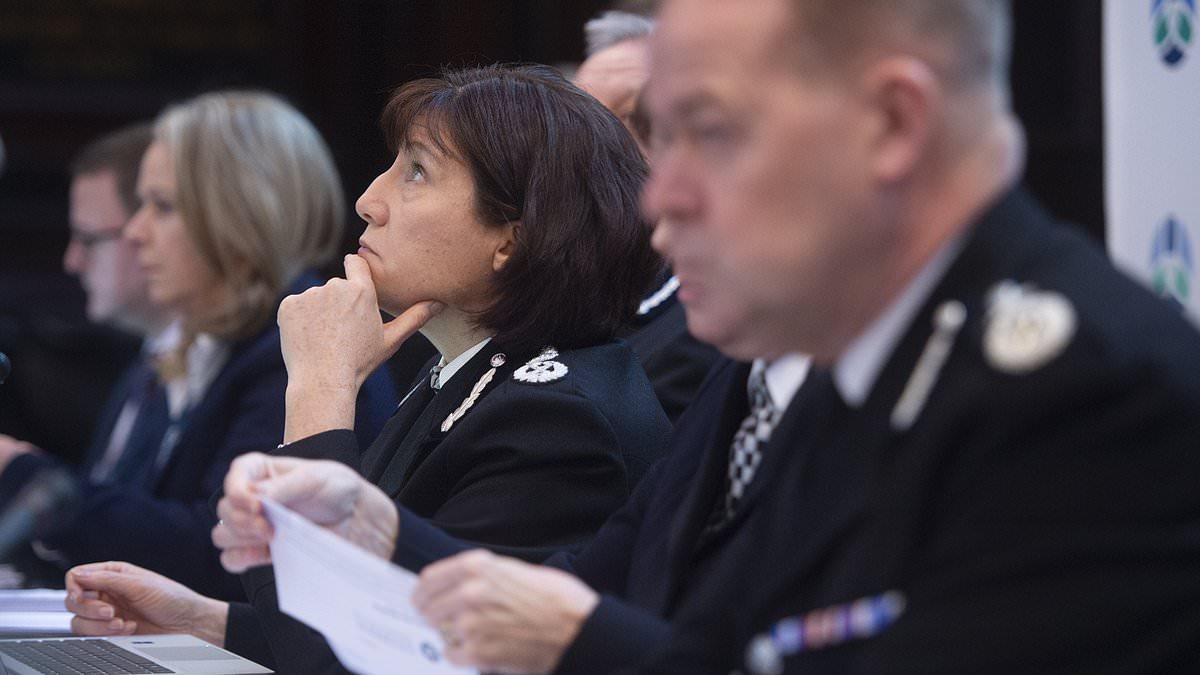The proposed Scotland-wide extension of a controversial pilot project where minor crimes were not investigated is nothing short of a disastrous decision.
In euphemistic language, it is billed as a ‘proportionate’ response to crime, but it brings into sharp focus an important question: ‘What exactly are the police for?’
The trial, which took place in the NorthEast of Scotland, is being hailed as a ‘success’ and will likely be rolled out across the nation – though the evaluation report has yet to be published.

Former superintendent Martin Gallagher has described Police Scotland’s decision not to tackle minor crime as ‘disastrous’
It appears to be underpinned by the assumption that some crimes can be safely written off at source, effectively – but that is mistaken.
Originating in the US, the so-called Broken Windows Theory puts forward that if you let minor crime such as vandalism run rife, everyone’s quality of life will deteriorate – creating an environment where serious crime flourishes among the detritus.
The New York Police Department (NYPD), in pursuing this idea, implemented ‘zero tolerance’ of minor offences in the 1990s – with spectacular success.
But not everyone agreed this approach had been the reason for the decline in crime – and it was ultimately abandoned. Not surprisingly, crime crept back.
I was in New York City when zero tolerance was embraced. There was a smart-looking police officer on every street corner – wholly attuned to what was going on around them.
When I went back to New York in October 2022, where zero tolerance was long abandoned, the city was a mess.
Rubbish was everywhere, crime was rampant, cops were unshaven and disinterested, and I personally was very lucky not to come to blows with an aggressive beggar bothering my family and a young girl on the subway.
Not long after my visit, NYPD Chief of Patrol John Chell acknowledged the step away from minor crime that had occurred in the city and outlined what he was doing to tackle it. So far, his results are good.
In extending the pilot of what amounts to ‘non-investigation’ of minor crime, it strikes me that Scotland may be about to go through a great deal of pain before it learns the lessons being re-applied to New York.
You will often hear it trumpeted that crime is falling, and at its lowest level since 1974 – but this is simply not true.
In reality, recorded crime is at an all-time low, and there are several reasons for this. Most worryingly, it is estimated that more than 60 per cent of crime is unreported. Why, might you ask? Well, public confidence in the police has fallen to 38 per cent.
If the public already don’t have confidence in the service – and 62 per cent don’t – then when we tell people, ‘Your report isn’t going to be investigated’, by how much further will calls drop?
You don’t need a crystal ball to realise that with a fall-off in reporting crime, offending will grow like a cancer in our communities.
Crime is a progressive pursuit – a sex offender often starts stealing women’s underwear from washing-lines, while a housebreaker starts off by smashing their way into people’s sheds. If we don’t know these first offences are happening, then the point at which individuals first come to the attention of the police will be the point at which they carry out more serious offences.
Far greater harm will have been inflicted, whereas if investigation of minor offences had been undertaken the offender may have been apprehended before they become a serious criminal.
This brings me back to the question that everyone in Scotland needs to consider – what are the police for?
When I set out for my first shift in 1994, the mission was clear: I was there to prevent and detect crime. This mission has been diluted in the intervening years, with 80 per cent of calls to the police having no relation to crime at all.
For Scotland, this can be traced to the legislation that created the service post-amalgamation in 2013, with the fundamental change being that the ‘main purpose of policing is to improve the safety and well-being of persons, localities and communities in Scotland’ – not to detect and prevent crime.
The improvement of ‘well-being’ is a vague purpose that has seen the police become the service of last resort due to problems in other state functions, such as the NHS.
This is why the Chief Constable is trying to pull the service out of its inappropriate commitments to mental health call-outs.
Without revisiting this purpose, and the buy-in of the NHS and Government, this unilateral change is doomed to fail – inevitably with frontline officers and staff facing the consequences.
To quote Robert Peel, the father of modern British policing: ‘The police are the public, and the public are the police.’
I don’t recall a member of the public ever telling me they wanted me not to investigate a crime, and instead they wanted me to look after someone’s ‘welfare’.
It’s time the police were allowed to go back to doing what they do best – and for other services to step up to the gaps that they should have been filling in the first place.
- Martin Gallagher is a former superintendent with Police Scotland, who served as area commander of Paisley
